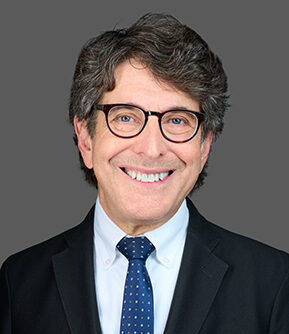Sixth Circuit Denies Rehearing in Hospital-Physician Kickback Case
In a prior blog post, we discussed U.S. ex. rel. Shannon Martin, M.D. v. Darren Hathaway, M.D. et al, a Sixth Circuit case involving the questions (1) whether a hospital’s decision not to hire an ophthalmologist (Dr. Martin) in return for a general commitment of continued surgery referrals from another ophthalmologist (Dr. Hathaway) constituted “remuneration” covered by the Anti-Kickback Statute (“AKS”), and (2) whether claims from such continued referrals resulted from violations of the statute for purposes of liability under the False Claims Act (“FCA”).
A three-judge panel of the Sixth Circuit issued an opinion in March holding that the hospital’s decision not to hire Dr. Martin (there was apparently an underlying business dispute between Dr. Martin and Dr. Hathaway) did not constitute remuneration because the term “remuneration” as used in the AKS only covers payments and other transfers of value, and the decision not to hire was neither of those.
The court then applied a “but-for” test for purposes of determining whether the claims from such continued referrals for purposes of FCA liability “resulted from” a violation of the AKS assuming for this purpose that there was a violation. The court concluded that because there was no change in referrals following the decision not to hire. (There was not “one claim for reimbursement identified with particularity … that would not have occurred anyway, no matter whether the underlying business dispute occurred or not.”)
Following the issuance of the opinion, Dr. Martin and her husband, who had been a finance director at the hospital, filed a petition seeking full review by the Sixth Circuit.
In the petition, they argued that the panel, in focusing on the hospital’s decision not to hire Dr. Martin in exchange for Dr. Hathaway’s referrals, “critically misstate[d]” the complaint’s key theory of remuneration. The “case is not about hiring, or not hiring; it is about Dr. Hathaway’s continued referrals (i.e., the offer) in exchange for Oaklawn’s continued referrals (i.e., the acceptance).” They argued that Dr. Hathaway, in offering continued referrals to the hospital in exchange for the hospital’s not hiring Dr. Martin, also sought to gain by protecting the referrals he received from the hospital. The Martins’ position was that the case is about “referrals for referrals” and the panel’s misstatement of the complaint’s key theory of remuneration was outcome determinative and effectively excludes all “referrals for referrals” schemes from the AKS and the FCA, which they asserted is mistaken and conflicts with decisions in other circuits.
In the petition, the Martins also argued that the court erred in applying the “but-for” causation test for purposes of determining whether a claim resulted from the AKS violation for FCA purposes. They pointed to other cases that they argued correctly favored a more expansive connection between the violation and the submission of the claim.
Dr. Hathaway and the hospital each filed responses in opposition to the Martins’ request.
On May 16, the Sixth Circuit issued an order denying the request for a rehearing.


